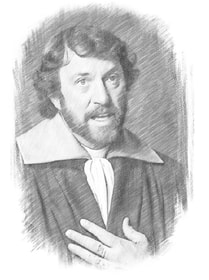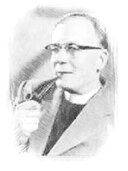Matthew 11
Matthew 11:12-15
|
Matthew 11:25-30:
At that time Jesus answered and said, “I thank You, Father, Lord of heaven and earth, that You have hidden these things from the wise and prudent and have revealed them to babes. 26 Even so, Father, for so it seemed good in Your sight. 27 All things have been delivered to Me by My Father, and no one knows the Son except the Father. Nor does anyone know the Father except the Son, and the one to whom the Son wills to reveal Him. 28 Come to Me, all you who labor and are heavy laden, and I will give you rest. 29 Take My yoke upon you and learn from Me, for I am gentle and lowly in heart, and you will find rest for your souls. 30 For My yoke is easy and My burden is light.” |
Life in community involves problems. Marriage is spoken of as a yoke in scripture (II Cor 6:14), and believers are commanded to avoid the unequal yoking with unbelievers. Discipleship is also spoken of as a yoke. Modern man seeks to avoid the yokes of community life in Christ, and he falls under the heavy yokes of the state. Christs yoke is easy and His burden is light, because it is a yoke that gives grace, as do all yokes borne in the Lord and in terms of His law-word.
|
|
Many things in life can be like a heavy yoke and burden. You know, a yoke is a large wooden beam used between a pair of oxen to enable them to pull their burden together in pairs. Jesus says that we should take up His yoke because His yoke is easy, and His burden is light. He also promises that He will give rest to our souls.

But what about the apologetic answers to the Problem of Evil? Is not intellectual peace the gateway to existential peace?
Perhaps that’s sometimes the case, but if our intellect serves what we worship, and we worship anything other than God, then our intellect will fight for a reason to reject Him. That’s why the hope of the Gospel must speak to our entire essence, not just our minds. Yes, some may require more intellectual reasons than others, but the call of Jesus remains the same: “Come to me and I will give you rest” (Matt. 11:28). He didn’t say: “I will answer your questions so you can live your life with intellectual satisfaction.” The writer of Job, likewise, responds to the problem of evil and suffering with God Himself, leaving intellectual questions unanswered for the sake of existential peace: “I know that you can do all things, and that no purpose of yours can be thwarted. I have uttered what I did not understand, things too wonderful for me, which I did not know” (Job 42:2-3) --Covert God |
The yoke, being a tool to enable hard labor to be performed, is rarely light itself. We are all born with the heavy yoke of original sin. The guilt of sin and the burden it causes weighs down the sinner, creating progressively harder yoke. Some grow to love the sin and the burden it causes, loving the impossible task and enslaved by their sin. Others find the Gospel, and faith flourishes. They find it lightens their load, and the world is no longer hopeless. Christ carried our burden to the cross, paid the debt we owed, and laid the yoke of sin's guilt to the side, replacing it with His yoke. Forgiveness is always available from Christ, although we continually sin. We put the sinful yoke on, add the guilt, and wonder why things are so difficult. When we receive forgiveness through the Sacraments, Faith takes replaces the yoke with Christ’s yoke, relieving us of the burden. Granted, we eagerly pick the sinful yoke back up at the first opportunity, but God is patient with us. Faith pulls the sinful yoke back off, sometimes after we have experienced the painful burden to remind us. When one rejects the Faith, they usually grab ahold of some sin over time, burden themselves with it, and add to it as often as they can. They push God's "hand" away, preventing God from removing the burden they grew to love. They no longer seek the Sacraments, or forgiveness. They feel the weight of their guilt, and hold on to it. Over time, Faith no longer removes the burden and leaves the sinner alone. The devil, world and flesh gleefully add to it, knowing the yoke will remain even though it bites into the shoulder and breaks the soul.
Only the Faith generated by the Holy Spirit can lighten the yoke. We cannot reach the bindings to free ourselves, only the places to grasp more firmly to the yoke. We can only add to our burden and never able to loosen it. That God-given Faith loosens the straps, lifts the yoke off our shoulders, and bids us rest with Christ’s yoke. When we do so, our yoke is light because Christ has carried the burden. There is no more debt to repay. No more of the yoke that destroys but the light yoke that builds up and saves. Faith removes that which damns and destroys and replaces it with bondage to Him who has risen from the dead. You must be bound to a master- the one who craves your death, or the one who did it all for your life. --Cleaving the Darkness |
 Jeremiah Burroughs
Jeremiah Burroughs
“Learn to set a high price upon the quiet and sweetness of your spirit, set a high price upon it, account it to be a rich jewel of great worth, as we told you, that God accounted the meek spirit to be of great price; ‘tis one way to get it, to have a right esteem of the rest of spirit, and quietness that meekness will cause in the soul…therefore saith Christ, learn of me who am humble and meek, and you shall find rest to your souls…I have found this, that when I have been able to overcome my passion, I have had the sweetest time that ever I have had in all my life: when I could deny myself, and exercise meekness, O the quiet of any heart, it was worth a world, and shall I loose this for a trifle, now for a toy, O the poor trifles and toys that men and women do cast away the quietness of their spirits for, as if they were nothing worth.”
-Jeremiah Burroughs, The Saints Happinesse; Sermon XIII
-Jeremiah Burroughs, The Saints Happinesse; Sermon XIII
 JB Philips
JB Philips
[Some Christians] prevent themselves from growing up. So long as they imagine that God is saying 'Come unto Me" when He is really saying "Go out in My Name," they are preventing themselves from ever putting on spiritual muscle, or developing the right sort of independence quite apart from the fact that they achieve very little for the cause to which they believe they are devoted. --JB Philips; Your God is Too Small

Since the world seems to run counter to the gospel message and in some respects quite opposite of it, it may be safe to say that the one who does not incorporate God's offer of rest is to be without rest, unsettled, maybe even unstable. It has to be quite a battle to ignore reality. This false reality has to be soaked in illusionary visions and goals in order to pacify this unrest if even for just the moment. Sin wearies the flesh. It makes us weak and sick. It saps away all that is good and kind and precious. And it hardens the heart, destroying peace and causing guilt, sorrow and shame. It consumes the mind’s thoughts, weakening and darkening the soul. It brings on fear. It leads to scandal, breaks up families, hardens children. And it leads to death. Worst of all, sin shuts off all communion with God. Heeding Jesus' plea of "come unto me" is both wisdom and health.
Sin is against man's rest and ease, of which man is a great lover; and, of which, he needs it as a great part of his well being. It is a sore travail which the sons of men have under the sun. What has man of all his labor, and the vexation of his heart wherein he labors? For all his days are sorrows, and his travail grief (Eccl 1:13; Eccl 22 & 23). This is so whether he increase wisdom and knowledge, or pleasure and riches. He takes no rest in the night, but is haunted with vain and extravagant, if not frightful dreams; and his fancies, which are waking dreams by day, are more troublesome than those of the night.
Sin is against man's rest and ease, of which man is a great lover; and, of which, he needs it as a great part of his well being. It is a sore travail which the sons of men have under the sun. What has man of all his labor, and the vexation of his heart wherein he labors? For all his days are sorrows, and his travail grief (Eccl 1:13; Eccl 22 & 23). This is so whether he increase wisdom and knowledge, or pleasure and riches. He takes no rest in the night, but is haunted with vain and extravagant, if not frightful dreams; and his fancies, which are waking dreams by day, are more troublesome than those of the night.
|
The kingdom of our God advances powerfully, and no force can successfully thwart that forward progress throughout the world as long as our Lord wills it so. The gospel is being proclaimed, and it will not be stopped. Similarly, those determined to be a part of this marvelous eternal kingdom of God will advance toward it, and enter into it, with a forceful determination that will surmount any obstacle. They too will not be stopped. “The kingdom has come with a holy power and magnificent energy that has been pushing back the frontiers of darkness. The kingdom is making great strides; now is the time for courageous souls, forceful people, to take hold of it. This is no challenge for the timorous or fainthearted” [The Expositor’s Bible Commentary, vol. 8, p. 266]. I believe Luke alludes once again to this need for a determined spirit in the face of opposition in Acts 14:21-22 where he says that Paul and Barnabas, “after they had preached the gospel to the city of Derbe and had made many disciples, returned to Lystra and to Iconium and to Antioch, strengthening the souls of the disciples, encouraging them to continue in the faith, and saying, ‘We must go through many hardships to enter the kingdom of God.'” Because of the obstacles that lie ahead, it will take earnest, eager, forceful, determined men and women of great faith to face such opposition and to lay hold of the prize. Paul wrote, “I press on in order that I may lay hold of (seize) that for which also I was laid hold of by Christ Jesus. … One thing I do — forgetting what lies behind and reaching forward to what lies ahead, I press on toward the goal for the prize of the upward call of God in Christ Jesus” [Philp. 3:12-14]. Paul sought to seize (lay hold of) the prize, just as the men of purpose in Matthew 11:12 were seizing (laying hold of) the kingdom of God. --Al Maxey
|
Jesus is addressing an age old problem of forcing God’s agenda according to our liking and this was certainly the problem with the Pharisees. There is little more sinister than assuming responsibilities that belong to God alone based on how we think things should be. Unfortunately, I think this applies to Christians who have a list of activities that they must accomplish to make something happen under the presumption that the “violent take it by force”. No, only God does that and we submit to his will, rest in his promises and respond by loving Him and neighbor, making disciples and being a witness to God’s redemptive kingdom agenda. Certainly, that includes a host of activity on our part both individually and corporately but not because we are trying to violently take something. The victory is in Christ and we must point to Him. --Lisa Robinson

and the violent take it by force; meaning either publicans, and harlots, and Gentile sinners; who might be thought to be a sort of intruders: or rather the same persons, as being powerfully wrought upon under the ministry of the Gospel; who were under violent apprehensions of wrath and vengeance, of their lost and undone state and condition by nature; were violently in love with Christ, and eagerly desirous of salvation by him, and communion with him; and had their affections set upon the things of another world: these having the Gospel preached to them, which is a declaration of God's love to sinners, a proclamation of peace and pardon, and a publication of righteousness and life by Christ, they greedily catched at it, and embraced it.
|



